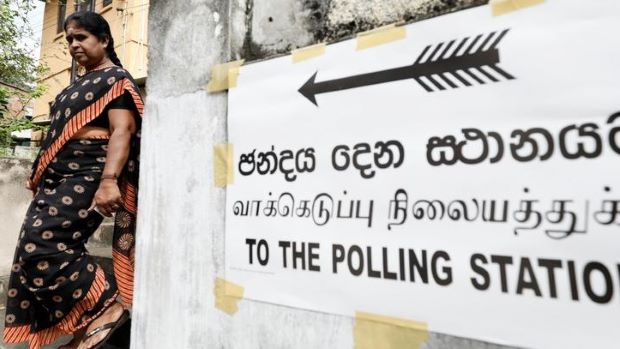COLOMBO — Nominations for Sri Lanka’s parliamentary elections will be accepted until 12:30 p.m. on Friday (11), the Election Commission said.
“Nominations close at noon Friday. Objections will be accepted between 12:30 p.m. to 1:30 p.m.” Election Commission Chairman R. M. A. L. Ratnayake said.
“On this day, after nominations and objections are accepted, no marches or gatherings are allowed. Police have made special security arrangements,” he added, requesting supporters of parties and independent groups to refrain from illegal activities after nominations and not to create any problematic situation until the nominees have left the premises.
President Anura Kumara Dissanayake signed a gazette notice dissolving Parliament on September 24 calling elections on November 14.
The Election Commission started accepting nominations on October 4. The new Parliament is to meet on November 21.
President Dissanayake was elected with 42% of the vote, the first time a president had been elected below 50% of the vote.
He had only three members in the current legislature. Following his resignation, another member was appointed to fill his vacancy.
Soon after his election, Dissanayake appointed a cabinet of three, distributing 15 ministries among them.
Sri Lanka’s 1978 constitution introduced a radical departure to the previously existing electoral system and electoral districts. According to parliament.lk, the previous system was based on constituencies with individual candidates nominated by recognized political parties or independent candidates. The candidate obtaining the highest number of votes in respect of the constituency was declared elected. This system, commonly described as the First-past-the-post (FPP) system, was changed into a system of Proportional Representation in respect of 22 electoral districts.
The apportionment of the number of members to be returned from each electoral district is made by the Commissioner of Elections in terms of Article 98 (8) of the Constitution. In all, 196 Members of Parliament are returned on the basis of the voting in the respective electoral districts. The 15th Amendment to the Constitution introduced Article 99A, which provides for 29 members to be declared elected on the basis of the total number of votes polled by the respective political parties or independent groups at the national level (the National List). Thus, we have a proportional system at the district level and a proportional system at the national level based on the same poll.
In terms of section 99 (6) (a) of the Constitution, a recognized political party or independent group polling less than 1/20th (5%) of the total votes polled within the district is disqualified and the balance of valid votes are reckoned for allocation of seats on the basis of the proportional computation.
In each district, parliament.lk notes, the political party or independent group securing the highest number of votes is entitled to have one member declared elected (the Bonus seat). The remaining number of members is declared elected on the basis of the proportion of votes obtained by the political party or the independent group.
The 14th Amendment to the Constitution introduced a system of preferential voting on the basis of which, the particular candidates to be returned from within each political party or independent group is determined. Each voter is entitled to indicate his preference within the list of candidates of the political party or group to which the vote is cast. Three such preferences could be indicated on the basis of the number assigned to a particular candidate after the nomination paper is accepted by the Returning Officer. The counting of preference votes takes place at the second stage of the counting process in order to determine the particular candidates who would be declared elected from within each political party or independent group.
-economynext.com



Comments are closed, but trackbacks and pingbacks are open.